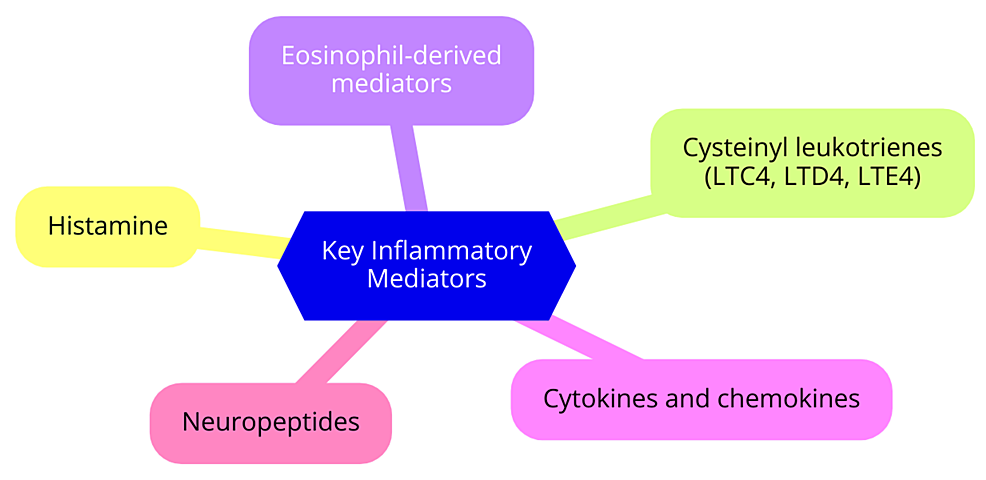Sharma A, Deshmukh P, Jain S, et al. Cureus 16(7): e64410. doi:10.7759/cureus.64410Abstract
Allergic rhinitis (AR) is a prevalent inflammatory disorder of the nasal mucosa, triggered by allergen exposure and characterized by symptoms such as sneezing, nasal congestion, itching, and rhinorrhea. This comprehensive review aims to unravel the molecular mechanisms underpinning AR, exploring the pathogenesis from allergen recognition to chronic inflammation and tissue remodelling. Central to the disease are immunoglobulin E (IgE)-mediated hypersensitivity reactions, involving key inflammatory mediators and cellular players such as mast cells, eosinophils, and T cells.
 |
| Key inflammatory mediators involved |
Genetic predisposition and environmental factors also play significant roles in susceptibility and disease progression. Therapeutic strategies for AR are varied, ranging from symptomatic relief through antihistamines and nasal corticosteroids to more targeted approaches like allergen-specific immunotherapy. Emerging treatments focus on novel molecular pathways, with a growing emphasis on personalized medicine to optimize patient outcomes. Despite advancements, challenges remain in fully understanding the heterogeneity of AR and developing universally effective treatments. This review synthesizes current knowledge, highlighting critical insights into the molecular basis of AR and their implications for clinical practice. It underscores the need for integrated, multidisciplinary approaches to enhance therapeutic efficacy and calls for ongoing research to address unresolved questions and explore new frontiers in AR management. Through this comprehensive synthesis, the review aims to inform and inspire future research and clinical strategies, ultimately improving the quality of life for individuals affected by AR.PDF


No comments:
Post a Comment